Any chance your big box 'o cords contains some "cords" as in cords and some "cords" as in adapters?
"Cords" as in cords: These have a plug that goes into the wall and an IEC 60320-compliant plug. With these, it's not critical to use them with the exact same device they came with. The general rule is: If they fit, they're good. Over time, you may end up having lots and lots of them, because many new computers/monitors/whatnots are shipped with one. Keep the nicer dozen of each type, give the rest to a friend hacker of yours or try your community's recycling yard (cable bin for copper recycling!).
"Cords" as in adapters: These are sometimes also called wall warts, because the somewhat bigger enclosure (wart) that is plugged into the wall contains a transformer or other type of power supply, and they have a low-voltage output specifically designed for a certain type of equipment. There is no standard to make sure you don't fry a device designed for a 5 V supply with a wrong, higher-voltage adapter, e.g. one that outputs 12 V. Also, even if the voltage is the same between two adapters (say: 5 V DC), the polarity at the small plug to the device may be different... These adapters can only be used interchangeably if all the details match (Voltage, AC vs. DC, polarity, current rating, size of plug - and I may have forgotten something). Sometimes, mostly for laptop adapters, it is even necessary that the laptop receives a datagram from its very own power supply... TLDR: It is wise to have labels on adapters, like some of yours do. No labels: The tiny print or the manuals may provide the information about what matches with what. No tiny print or no manuals: Detective work, and hoping you don't let the magic smoke out if plugging the wrong adapter into a device... Some are probably junk, some may be valuable (C64, vintage musical instruments?), even if you don't need them any more (-> flea market, online classifieds or auction?).
Some more hints on power supplies or adapters of unknown origin or purpose: https://electronics.stackexchange.com/a/34746/930

